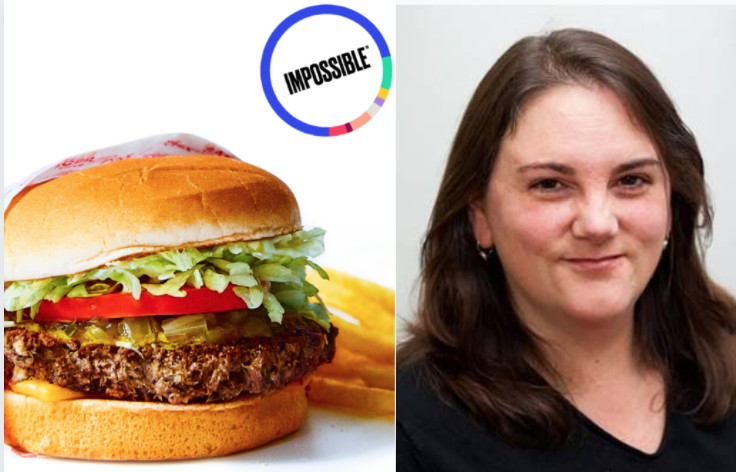
Jessie Becker, Senior Vice President of Marketing at Impossible Foods, joined SiriusXM Business Radio’s “Marketing Matters” to talk about the future of food, how meatless meat could help combat climate change, and her company’s mission to completely replace the use of animals as a food technology by 2035.
Jessie Becker, SVP Marketing at Impossible Foods: The fundamental reason we exist as a company is because we think that the way people eat food today is a huge contributor to climate change. And we actually think the biggest thing that people can do is not change your car to electric, which I recently did, or add solar power to your roof, but actually to stop eating animal meat. I mean the statistics are kind of crazy, and my job of course is thinking about how do we take this from a scientific paper on climate change and turn it into something that’s compelling to consumers? If you think about all the land that we use in the world, that’s devoted to cows grazing, to raising the stuff that cows eat and all of that, it takes up 45% of earth, non ice covered land. Huge amount. Now, then you look at how much land is taken up by people and cities. It’s 1%. There’s a huge number…and the food we grow for cows. And so really what we’re trying to do is..listen, everybody at some level understands or is denying that the climate is changing and that we have to do something about it. And that’s our job. We want to take away animal agriculture as a way to restore the climate to a place where we can live. And if you tell people like, Hey, you should stop eating meat. Why don’t you go vegan? People are like, Ugh…meats good. And we’re like, we agree. Meat is delicious. What if I told you that I can give you meat that’s made from plants and is just as delicious?
Host, Barbara Kahn: Before we get to that I want to get to the marketing thing about it, but you’re saying, and that’s a whole other area, but we have a little bit of time so before we get to the marketing part, let me just push back a little on what you’re saying, which I think it’s actually much bigger than I thought. I mean, it’s a pretty big platform. So I’m curious on what products Impossible Foods is going out with, and where their growth is, but I’m also curious how political, what you’re saying is. I mean, if you’re talking about not eating animals someday, if that’s really where you’re going, how are the farmers and the meat farmers and, you know, all of those people reacting? There’s got to be a whole big industry that’s not really on your side. So what do you do with all of that?
Jessie Becker, SVP Marketing at Impossible Foods: Yeah, well, it is a big industry realignment and I mean, I think a great example to look at is if you look at the electric car industry, it’s a massive disruption there, but it’s not like we’re saying, take those jobs away and don’t create new jobs. We’re saying, take those jobs away and come work on something different. And so I think there’s a similar path that needs to happen in agriculture. And we have some ideas on what that looks like, but honestly we’re not the experts on what that can and should look like, but we’d love to engage in the conversation.
Jessie Becker, SVP Marketing at Impossible Foods: I think Impossible Foods is trying to do a lot of what tech companies do, which is change consumer habits in a really fundamental way, and to do it at a really fast pace. That’s what we did at Netflix. We came in and we created a new way of doing things and got people excited about it, and within a few years you saw Blockbuster going from 6,000 stores to many less and then to bankrupt, and then on to streaming. And now people forget that Netflix ever did DVDs. And I think Impossible Foods path is going to be similar where I think five years, maybe 10 years from now, people are gonna say, remember, when we used to eat meat made from animals, how weird is that?
Host, Americus Reed: Wow, interesting.
Host, Barbara Kahn: Do you think it’s really to be that big a change?
Jessie Becker, SVP Marketing at Impossible Foods: I do. I absolutely do. I mean think about how long it took to go from smoking was okay, and it was weird to go into a restaurant and ask for a non-smoking table. And now you would never go into a restaurant and imagine there’s smoking there. So the day-to-day change seems slow, but when you look at it in five-year chunks, you can make huge changes. And that’s what we think is going to happen.

